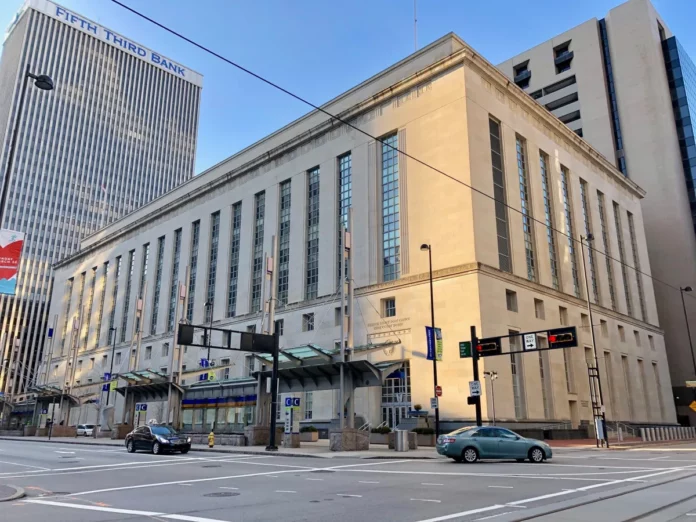U.S. Circuit Judge Andre B. Mathis questions the standing of libertarian think tanks in their lawsuit against the Biden administration’s plan to relieve $39 billion in student loan debt, expressing skepticism over their ability to recruit workers.
Skepticism Over Competitor Identification
During Thursday’s hearing, U.S. Circuit Judge Andre B. Mathis challenged the standing of the Mackinac Center for Public Policy and the Cato Institute, questioning their failure to specify their competitors in the legal battle against the Biden administration’s $39 billion student loan relief plan. The judge pressed the attorney representing the think tanks, emphasizing the absence of details regarding the specific private sector employers these organizations are purportedly competing against for legal, economic, or communication professionals.
“I don’t see in the complaint where you, as you’ve laid out here, that you have attorneys that may be competing with private sector law firms and things of that nature,” Judge Mathis remarked. “That doesn’t seem to be spelled out in the complaint.”
6th Circuit $39B Student Debt Relief : Appeal Against Dismissal
The Mackinac Center for Public Policy and the Cato Institute are appealing a district court’s dismissal of their complaint, which argued that the Biden administration’s plan unfairly disadvantages them in recruiting workers due to the impact of federal student loan adjustment. The district court ruled that the think tanks lacked standing to sue as they failed to demonstrate how the loan adjustment directly hampers their recruitment efforts. However, the think tanks contend that they were unjustly denied the opportunity to amend their complaint to provide such details.
Financial Incentive at Stake
Representing the think tanks, Sheng Li of the New Civil Liberties Alliance argued that the promise of loan forgiveness under the Public Service Loan Forgiveness Program serves as a potent financial incentive for borrowers to work for public service employers over private sector entities. He emphasized that the loss of this incentive due to the government’s plan would place the think tanks at an economic disadvantage in recruiting highly educated employees burdened by student loans.
Government’s Counterarguments
In response, Thomas Pulham of the U.S. Department of Justice countered that the think tanks lack a personal stake in the loan balances of student loan borrowers, thereby questioning their standing to challenge loan forgiveness. Pulham also disputed the think tanks’ theory that public service workers would immediately leave for the private sector after their loans are paid off, describing it as “counter-intuitive.”
6th Circuit $39B Student Debt Relief : Forgone Opportunity
The government further contended that the think tanks had forfeited their argument regarding the dismissal of their case by not filing a motion for reconsideration and failing to raise the issue in their opening brief on appeal.
Supporting Voices
In December, several nonprofit organizations filed an amicus brief supporting the government’s stance, asserting that the think tanks suffer no harm from the loan adjustments. These organizations, also qualified employers for the Public Service Loan Forgiveness Program, argued that the program benefits borrowers, who are not in competition with the think tanks.
6th Circuit $39B Student Debt Relief : Awaiting Ruling
Following Thursday’s arguments, representatives for the government did not immediately respond to requests for comment. The panel for the Sixth Circuit, comprising U.S. Circuit Judges Eugene E. Siler Jr., R. Guy Cole Jr., and Andre B. Mathis, presided over the hearing.






